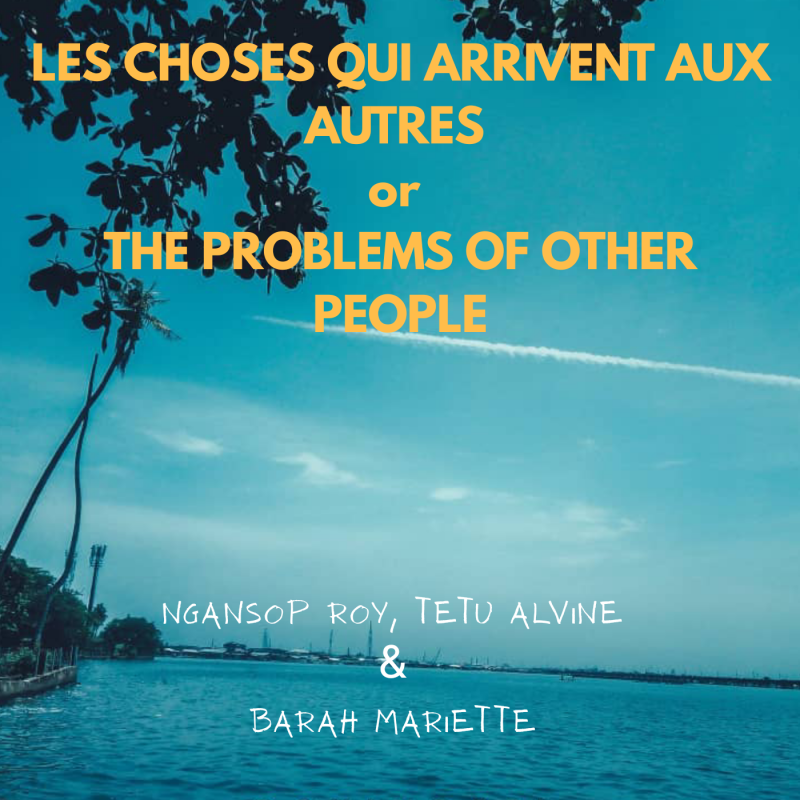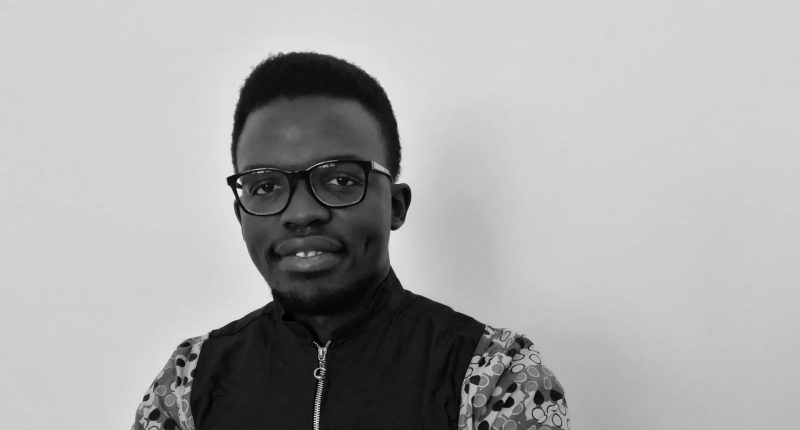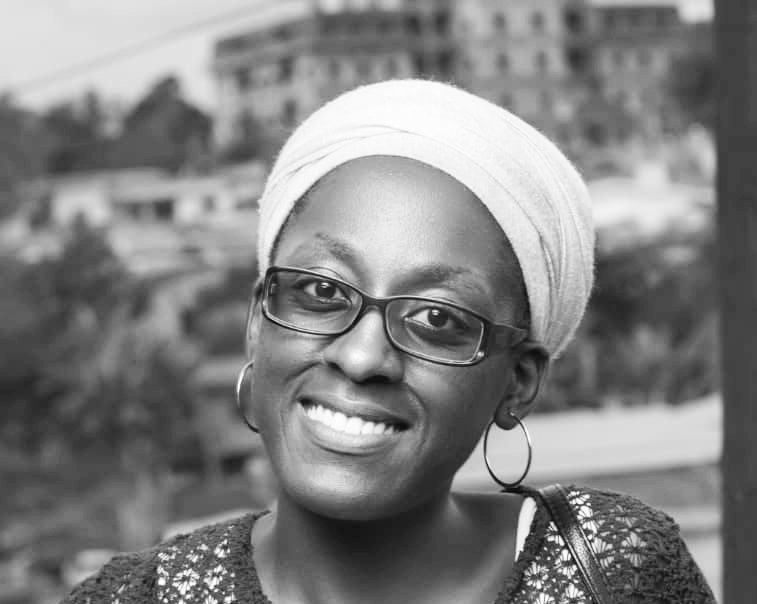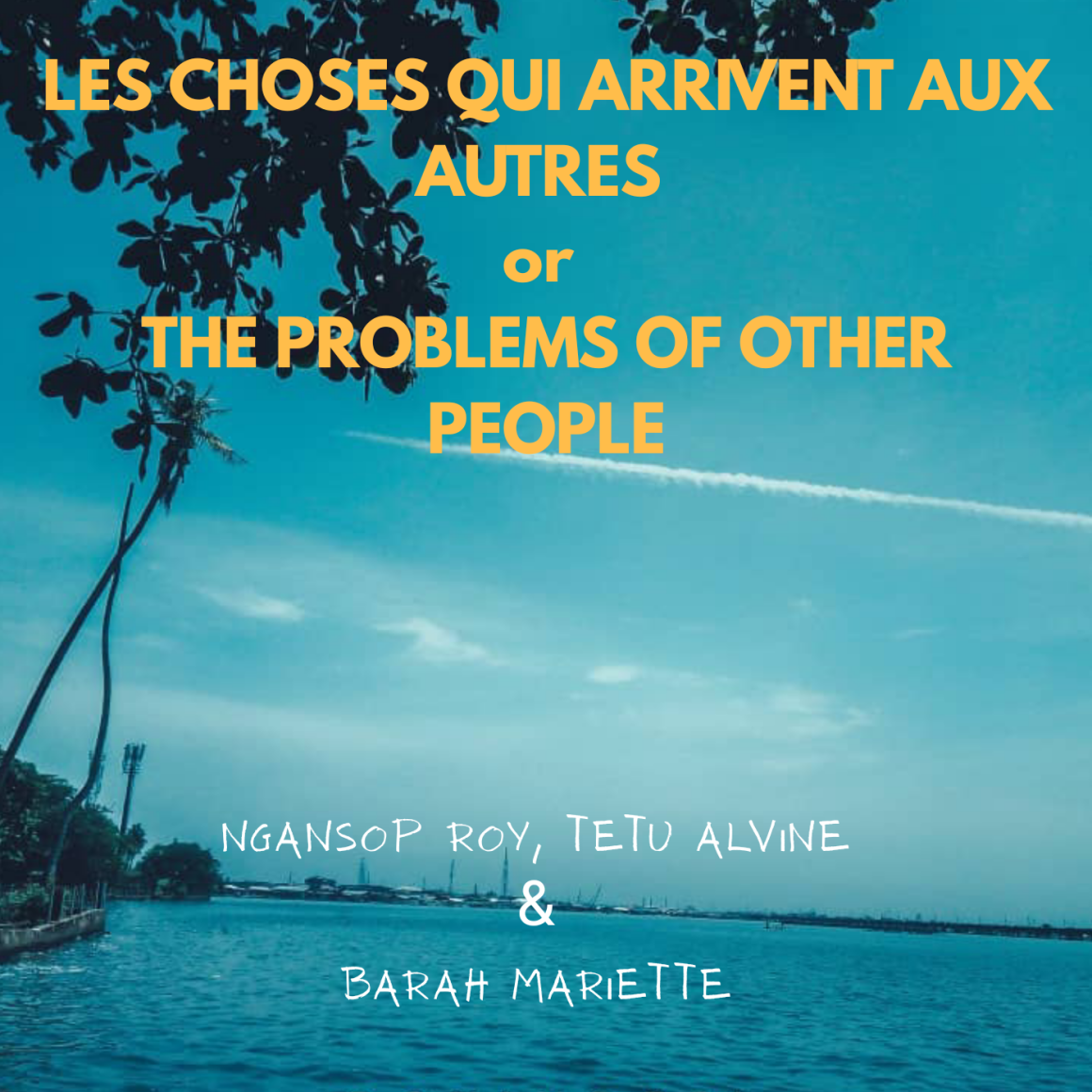
Afu was startled by the screams of his most trusted associate, the one who saved him from punishment at school every morning: his old alarm clock. His eyes opened, but the rest of him would not heed to the sonorous wake-up requests. 7 a.m. On a normal day, he would have showered in less than ten minutes, donned his khaki uniform, steel toed boots and ran to the assembly area. Instead, he cringed. 7 a.m. First day of vacation. Too early to truncate the comfort of a woolly blanket. In the harshness of the Harmattan more so. He gritted his teeth at the associate turned nuisance. He should have reset it before sleeping off. His body sank deeper as he turned and twisted. He pulled his sheets over his head. And the alarm eventually quiesced.
Bzzz bzzz, he heard again. This other familiar buzz seemed to come from his phone. His hands strangled his pillow. At school, it was rumoured that superiors sometimes called students to service during their holidays. During their end-of-year address, a speaker had urged them to expect the call to serve the coat of arms anytime, like the Son of Man’s return. His hands struggled through folds of blanket. He groped the phone but only patted it. Whatever effect he expected that to have on the annoying buzz didn’t come to yield. So, he rose to more lucidity, sat up and spanked the switch on the nearby wall.
The light rays from the lone bulb in his room revealed chaos: shirts and shoes rested on the chair, the chair itself stood on the study table, right below the access to the roof, the ironing table leaned diagonally across the window, two car tyres pushed out from the half-open and overpacked cupboard; nothing like the tidiness he maintained before moving to Yaoundé for school. Everywhere looked dusty, except the floor. It was as though the bare floor was more regularly cared for, more regularly used.
He picked his phone. None of the notifications were from his administration. He sighed. Perhaps deep down he wished this was a call to serve the nation already. He dived into one of the popping WhatsApp groups, anxious to know what subject matter had made his morning premature. There were lots of pictures, essays and forwarded messages. Pictures of empty streets. Pictures of trucks. Although nothing was written on the trucks, he could tell they belonged to the Rapid Intervention Pack, the RIP. He had learned this at school. This specialised unit did this sometimes to camouflage and ambush the enemy. He didn’t read through the long messages on the group chats, but one comment below a truck picture caught his attention. He frowned and gripped the phone with both hands to reply.
[Nkong Vince D.: La republic trucks are coming to kill. If you can’t leave town, please stay indoors. All side for Bamenda be unsafe now so!]
Afu: Everyone just keeps talking about what they don’t know. Be careful, MINCOM is monitoring. Stop this propaganda !
Ade Ekole: Un an et tu parles déjà comme eux. Lavage de cerveau obosso! Donne-nous les vraies infos alors, futur commissaire. Only a year and you speak like them already. Talk about brainwashing. Give us the facts then, future commissioner.
Although confident he knew better, Afu wouldn’t discuss the issue any further. Pa Afu, his father, had warned him against this. The MINCOM — Ministry of Communications, in several public announcements had warned against this, too. Besides, he was himself resolute to stay off any issues involving guns, blood or politics, and enjoy his long-awaited vacation while it lasted. He dropped the phone, screen down.
*
Pa Afu was not home. He had moved to the capital to drive his master. The latter, a commissioner of the armed forces, had fled with his family for safety the day after peace plants met tear gas in the streets, the day the streets began to smell of fresh blood and radical anger, the day before Molotov cocktails and slingshots faced off with Kalashnikovs. While most of Pa Afu’s fellow inhabitants struggled with the anxiety and turmoil of imminent unrest, the hardworking man was exposed to much travel. And the trust from his master made him witness confidences he would never have predicted: conferences with international observers one day, reporting to the Ministry of Defence the next. And so on. Because more travel meant more money, the family man was more than ever invested in his career. To the benefit of his three-man household.
However, as expected, Pa’s prosperity during those communally trying times was a double-edged sword for his immediate kin. Many acquaintances had stopped holding them in esteem. It began with their neighbours in Azire. ‘Blacklegs!’ They would shout each time Pa Afu returned from his multiple missions. Then Ma’s competition at the market began feeding rumours that her husband was a spy. Eventually, Pa’s elder brother who relocated to the village because of the crisis had come all the way to order his resignation. Pa had reminded his brother of the early days, when only teachers and lawyers were on strike. The city didn’t shut down. Other workers continued earning their daily bread.
“Why should I resign when the crisis has not affected my job? Did you stop driving your taxi when the protests began?” Pa had asked.
“I drove people to the protests; I helped the common cause,” his brother replied.
“…and fended for your family,” Pa retorted.
To this response, his brother spat in the yard, left and neither returned nor called again.
Both parents had warned their son before his homecoming. Aside belonging to this family with growing unpopularity, Afu’s career orientation had impressed on him the symbol of oppression. He was a potential collector of cinq cents, an up-and-coming outlaw with power, a molester to be, or worse, a future killer. He was a different kind of future threat, depending on the experiences, fears and biases of whose opinion was asked. Upon his return, he had himself noticed the spiteful looks on the neighbours’ faces. Even his ex-secondary schoolmates who came to welcome him did so discreetly. They poked into the compound from the back and dashed out after a hasty reunion. If tagging with the forces of law and order had always been suspicious, in those times, it was tantamount to treason. This wasn’t a law or rule per se. At least not like the sabbatical Monday openly declared and enforced by the local militia. It was an unvoiced suggestion, stamped in the memories of everyone by the sudden and atrocious demise of the young girl who was merely suspected of dating a man in uniform.
*
Afu stepped off from bed, froze and stared a moment. His clock showed quarter past seven already. Asides not discussing critical military issues with laymen, Pa Afu had instructed his son to limit outings to the basics, the indispensable. Yet Afu had promised his friends to join them for the regular Saturday football match if he woke up early enough. It was early; he was awake — willingly or not. It had been over a year since he last enjoyed a game with the boys. He labelled his morning expedition indispensable. Come what may, the future officer that he is would surely know to take care of himself.
He picked his jersey, stooped and pulled old boots from underneath his bed. Since his mother, Ma Afu, was still asleep, he walked on tiptoes out of the house. If anyone had stopped him, he would have sworn this particularly indispensable expedition was absolute routine. But because no one did, jumping over the three-meter cement fence bounding the backyard seemed a lot safer for his enterprise than walking out the wide front gate that was rarely ever closed.
Before he jumped off the cement wall, someone called. “Mao!” He hesitated before responding. Mao was the nickname his monolid eyes and his love for the army had earned him at secondary school. During a lesson on great empires, his teacher had likened him to the famous Chinese Chairman, and the rest was history. His friends and the entire neighbourhood adopted it.
Afu turned to see who was calling. Tommy, the neighbour’s six-year-old son looked down and beckoned from their balcony. “Don’t go,” the boy said, “Popcorn.”
Without wondering too long what the kid was doing there so early, Afu pressed his lips. “Shhhh,” he hushed the young man, then scaled the fence with an agility that told of his good performance at the first year of physical training. His gymnastics was so great that the dried leaves and branches behind the wall rustled in excitement, amplifying the sound of his landing. Fearing Ma would wake up, he paused awhile before dashing away.
*
Crack! Ma Afu woke up to a loud sound. She jumped off the bed. Grabbed her Bible. Then rushed beneath the table and hugged the bare floor, wondering what the order of the day at the neighbours was. For the past weeks, men in uniform had been performing impromptu raids in the neighbourhood. They inspected houses and interrogated idle habitants, but never came to the Afus. Ma believed it was thanks to her man’s privileged position. However, she never took any chances. She always crouched beneath the nearest table in the house and waited until the rowdy hassle was over, until the footsteps squashing against dry leaves had faded off. On the noisiest days, she thought of intervening, or interceding. But it ended there, a thought. She never dared. At best, she felt sincere sorrow and prayed for the said neighbours.
The night’s darkness was barely shying away. The swaying shadows of whistling branches animated the window. She glanced at her phone screen. It was about half past seven already. She was almost late, unusually so. Perhaps because she had stayed up late the night earlier, catching up with her son. She rushed for a quick shower. Gathered her waist bag. The shop keys. Then left for the market.
As she walked past the huge trucks lined up on the side of the Food Market road, Ma Afu noticed some smoke columns rising from around her destination, feeding the shady sky. The skin on her forehead furrowed. Achombos never fried Akra beans so early on Saturdays. She rushed her step a little. Once she joined the last shortcut leading to the main market, wailing voices filled her ears. They grew louder as she got closer. And louder again. The early comers eyed her scornfully, as though she was a character from their nightmare. No one returned her greetings. She couldn’t be more confused. At the very last wall before the main market, she stopped. Lurched out of a cluster of fellow traders. “No, no, no…,” she sobbed, then screamed loud in disbelief of what she saw.
*
Structures were barely identifiable. Patches of zinc roofing swung and squeaked. The pillars had given way. They rested on one another at haphazard angles, in obviously unstable equilibrium. Only a few wooden pieces yet had any brown edges. Most of them were dark and smoky at the top, red hot at the bottom. She still held the keys to her shop but could already see what was left of the once wide shelf inside. Half-burnt bags of rice and flour littered the bare floor.
Some shops were intact. Others were partially destroyed. Hers seemed to have evaporated with the fumes. The red-hot pieces weren’t too far from there. She walked closer, still sobbing. Her metal stool hid beneath sachets of Foster Clark. The unstable shelf parts cracked in the glowing ember, threatening to give way. She crashed onto the ashy floor of her now open terrace and wailed heavily.
When she regained her breath and rushed to a neighbouring trader to ask what happened, he chased her out of his shop.
“Now you come to us for security?” he asked. “Nobi your pikin yi friend them that inside truck? Ask them. Ask your husband.”
Witnesses sucked their mouths and eyed unworried. Ma Afu returned to her spot to find anything she could save. Her sales records maybe. But nothing. The morning winds only blew more black ash in her damp, sullen face.
*
“Mao you don trong you all. You di play now na only power,“ one of Afu’s playmates said.
“Play ball massa. No di cry like small pikin,” he replied.
They had been playing for about an hour when the rampant firing began around the stadium. Pa. Pa-pa. Pa-pa-pa-pa…
His mates reacted almost instantly. “Na that men them that. Wuna run!” One of them said, running to kiss the grass behind a boulder.
“Mamamieee na weti this so for area?” It took Afu a few more seconds to process the situation. Talk about future military. He questioned some more before rushing to join them on the ground. And then suddenly, he recalled. He had left Ma Afu at home. Alone. Without divulging his whereabouts.
Hastily, he stood. His legs picked up speed before his friends could pronounce discouragements. He ran out of the pitch. His slippers fell off midway. He didn’t stop. The loaded trucks on the roadsides didn’t intimidate him. He sped off. Neither the lifeless nor freshly injured bodies littering the roads could slow him down. His senses seemed numb. He was driven and almost emboldened by fear. Fear for himself, for his mom, for Tommy, for everyone. The WhatsApp message he had judged unadvised in the morning pierced through him and drummed in his chest. All side for Bamenda be unsafe. He breathed in deeper and ran faster.
He arrived home from the back as he had left. The rattling sounds rose and fell in Azire, and perhaps beyond. It was deafening. He laid belly-down behind the wall and tried to hold himself still. But each shot served a sound stimulus his reflexes could not ignore. They were random. Unexpected. He couldn’t help being startled each time.
Then the sounds began to die out. Before they stopped completely, he heard someone crying. The voice sounded like Tommy’s. Was there no one at the neighbours to shut him up? Afu jumped into the neighbours’ compound. He pulled the boy into the outdoor kitchen.
“Popcorn,” Tommy cried.
Afu’s trembling hands pressed the frightened child’s mouth, silencing his cries. “Shidon quiet, I no want die,“ he muttered in a breathy voice.
The neighbourhood remained silent for about half an hour. Or more. He couldn’t tell. He pulled Tommy out of the kitchen, into the neighbour’s house. No one came out of the rooms. The living room looked neat. The front gate was locked from inside. It didn’t seem like anyone had stepped into the compound. However, for the kid’s safety, Afu wouldn’t leave him there alone. They walked out the gate quietly, cautiously.
Two steps into their compound, Afu’s legs wouldn’t walk any further. He let go of Tommy’s hands. His own palms covered his head. All the glass windows were broken. The wall was adorned with holes, like a magnified grater. Dark bullets littered the yard. He yelled angrily, hit the gate, then yelled again. He screamed so loud that Tommy resumed crying.
“Iyaaaaaaaa…” the small boy sat in the yard and wailed.
Afu teetered towards the main door in confusion. The anger and desperation his mates had been spewing in WhatsApp groups were now invading him, too. His brain began to corroborate the famous musician – his country man – Afo-Akom’s words: “les choses qui arrivent aux autres commencent déjà à m’arriver.“
“Iyaaaaaaaaa…” Tommy wouldn’t stop wailing.
Two of Afu’s playmates ran to the gate. “Maoooo Maoooo…” They called while rushing into the compound.
“Iyaaaaaaaa….” Tommy only cried louder. One of the boys lifted him to his feet.
Afu pushed the door open. It was loose. He walked in. The metal handle was on the floor. The living room was empty. All the furniture was scattered. There was no one in his mother’s room. No one anywhere.
He ran into his room and took his phone to dial his father’s number. He tried repeatedly, to no avail. He walked out and pounced on the cement facade with bare fists. His mates tried to calm him down, in vain. When he screamed his mom’s name, they began to fear, too.
“Kidnappers don doam again,” one said, clasping his hands over his head. “Thank God say you too be na nketou. Call your connections now-now-now…,” the other added.
Afu clenched his fists and stared so coldly that both his friends stepped away to a reasonable distance.
*
About an hour later, when Afu had tried his father’s number a million times and cursed twice as much to no avail, Ma Afu appeared at the gate. Afu trembled and rushed to her. Once she set eyes on him, a croaky whisper left her throat. “Let’s go!” She said. “Carry your bag as you brought it.”
“Thank God you are here,” Afu replied, struggling to hug her. “What happened? Your eyes are swollen… and where is your voice?”
“There’s no time. No one is safe. We are not safe here anymore. Daddy said we should leave town.” She pushed Afu’s hands from her face.
“Ah-ah.” He held both her shoulders, a little roughly. “First, you tell me what happened. What’s going on?”
“War is going on,” she shouted, pointing to the broken windows. “Look. War!” Then she resumed crying. “Wemeiii why me oo God? Market don burn. All my credits. Na ma life that don go so. See wa house now… Papa God, take me one-time oo, take me…“ She flung herself backwards.
The neighbours had started coming. Afu’s mates moved away with Tommy, almost engulfed in a thickening gathering of gossips.
Afu kept Ma from falling. He ushered her to the door. Her voice was coarse in a harsh way as though her loud cries tore her throat apart. They walked into the house. He sat her on the couch.
“What are we still doing here? I no want die oh,” she sobbed. “Some person say na Amba Boys they come here for kidnap we. Say na them too burn market. Other people say is the military that came to search. Na you know all that military thing dem. I know say which tory correct ma pikin?” She looked at Afu and paused.
His lips didn’t move at first. His eyes were wet and shaky. She stared long enough to realize that despite all the tags his admission to military school had conferred him, he was not any less confused and scared.
“What did daddy say about the situation?” he asked once she was calm enough.
“What should he say? Wa life don finish noh… let’s go,” she retorted and stood. “My business is gone. People don carry their problem puttam for wa head. Enemies of progress,” she added while rushing to her room.
Afu leaned his chin in his palms. Their problem. Whose problem? That of those whose fathers and husbands had neither power nor connections, or those unable to survive in the unfair system? That of those who had chosen to speak up, or the local militia’s only? That of Tommy, or the dead and half alive who laid on the streets?
Ma returned to the parlour with the small bag where she kept her most valuable stuff. “You are not packing?” She asked while pulling another empty bag towards the kitchen.
When Afu walked to his room, an unsigned note laid on the bag he had barely opened since his arrival.
Join our ranks. Protect your people. Serve your land. If they didn’t teach you how to kill us already.
He looked around anxiously, as though the messenger should have waited to collect his acknowledgement of receipt. The window was open to the backyard. But no one was there. Would leaving mean picking a side? He twisted and stuck the note in his pocket while reassessing the consequences of Ma’s one-way ticket. He closed his eyes and frowned, struggling to picture a place more convivial than his hometown, scouting for promises of progress that may come with pulling oneself away from one’s people and renouncing one’s home. Everything seemed dark.
“You are not packing?” Ma asked again, now standing at his door.
Afu picked his bag hastily, then dropped it right after and turned to her. “Is daddy’s job worth abandoning everything in Bamenda, in the village? Forever?”
Ma’s eyes paused on her son. She stared fixedly as though she had not thought about it before. “Your head no correct inside,” she replied, pivoting on her heel and rushing towards her bags. “Stay if you want.”
Afu sluggishly brought out his bag. Mother and son pulled their luggage out of the house.
The neighbours had not left. In the yard, they gave way to the soon-to-be exiled like the latter had some skin disease. “Yes, wuna comot go Yaoundé. Go and live like there was nothing wrong in your home,” some neighbours shouted. “Wuna no ever cross Matajem again,“ others added.
They hurried out of their compound, to the park and left for the capital. Far from the place they could no longer call home.
*
In the living hall of the frugal hostel where the Afus squeezed while waiting on a permanent shelter, Ma scouted the news for reports on the unfortunate incidents that had ripped her of everything. Throughout the following week, only one TV channel referred to the fire at the Main Market. In a tiny, almost unreadable banner at the bottom of their screen, they suggested that the fire was caused by a short circuit.
“Lies!” Ma screamed, “There is war there. People are not safe. There is war!”
“No one will ever care as much as we do,” Afu replied.
The next morning when Ma woke up, Afu was not in the hostel. His bag neither. He had left her a note saying he has been called to serve.

Ngansop A. Roy

is a Cameroonian fiction writer and poet whose works have appeared in A Cornered Gurl magazine.
Tetu Alvine

is a writer at Self-ish, a Cameroon-based publication, with an interesting take on self-searching and interpersonal relationships.
Barah Mariette

is a Cameroonian story-teller whose creative fireside stories have appeared in Bakwa Magazine.
Cover photo credit: Doyin Deji

